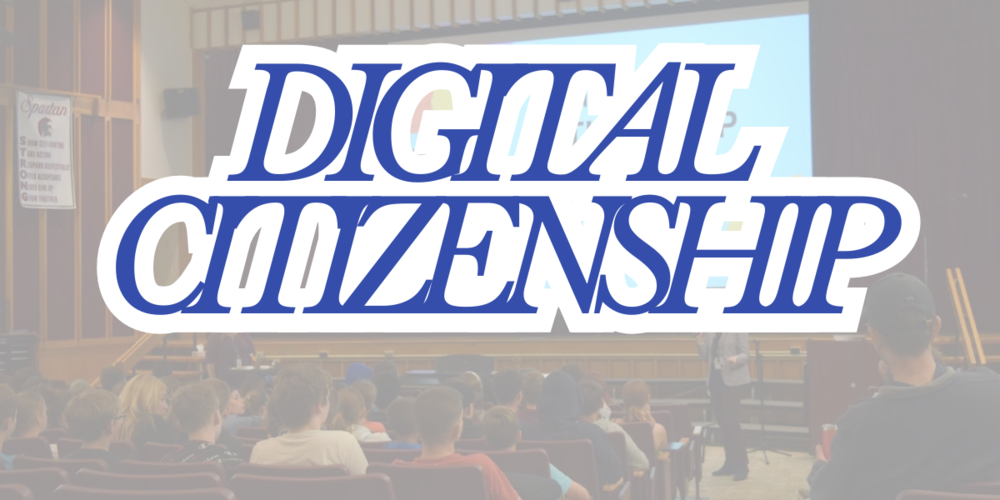This week, middle school students attended a presentation on Digital Citizenship: Owning Your Online World, a presentation designed to help them think critically about the choices they make online and the impact those choices have on themselves, their peers, and their future.
At the start of the session, students were asked a few simple questions: “How many of you have liked, commented, or posted something today?” Nearly every hand raised. “How many of you have a cell phone?” Almost everyone raised a hand, again. The point was clear, students are already digital citizens. The question is: what kind of digital citizen do they want to be, and what footprints will they leave behind?
The Three Core Roles of a Good Digital Citizen
The presentation introduced three key roles that guide safe and positive online behavior:
Respect – Treat others online the way you want to be treated.
Protect – Safeguard your privacy and the well-being of yourself and others.
Connect – Use technology to build communities, share ideas, and make a positive difference.
Students practiced identifying these roles through real-world scenarios. For example, choosing not to forward a rumor in a group chat demonstrates "protect," while sending an encouraging comment on a friend’s photo shows "respect." Sharing a lighthearted meme that spreads joy can be a way to "connect."
“Lighting Up” the Community
Students also reflected on how their actions can brighten, or darken. their school community. They discussed whether certain online choices were positive or negative, from congratulating a teammate on their win (positive) to posting “lol cringe” on someone’s selfie (negative).
The message was clear: before posting, reacting, or sharing, students should stop and ask themselves:
Will this make others feel respected, protected, and connected?
Will this light up my community, or keep it in the dark?
The Lasting Impact of a Digital Footprint
The presentation stressed that online actions have consequences. Damaged relationships, school discipline, legal trouble, and even lost opportunities in sports, college, or future jobs can all result from poor choices online. A recent incident in Spencerport, NY, was highlighted, where six middle school students faced harassment charges for cyberbullying and threatening a peer.
Students were reminded: “What you do online follows you.” Coaches, colleges, and employers often look at social media, and a single negative post can undo years of hard work.
A Serious Talk on Sexting
One part of the presentation focused on sexting. Students learned that sharing or saving explicit images, even of themselves, can carry severe emotional and legal consequences. In New York State, minors can be charged under child pornography laws, which can result in felony charges and serious penalties.
The speakers stressed that no matter the reason. peer pressure, attention, trust, or thinking “it will stay private," once an image is sent, control is lost. The risks include embarrassment, regret, broken trust, and potential legal charges.
What To Do When Things Go Wrong
The session closed with practical guidance. Students were encouraged to think about how they would respond if they encountered cyberbullying, inappropriate messages, or peer pressure online. They were also reminded about STOPit, a tool for reporting harmful behavior safely and anonymously.

